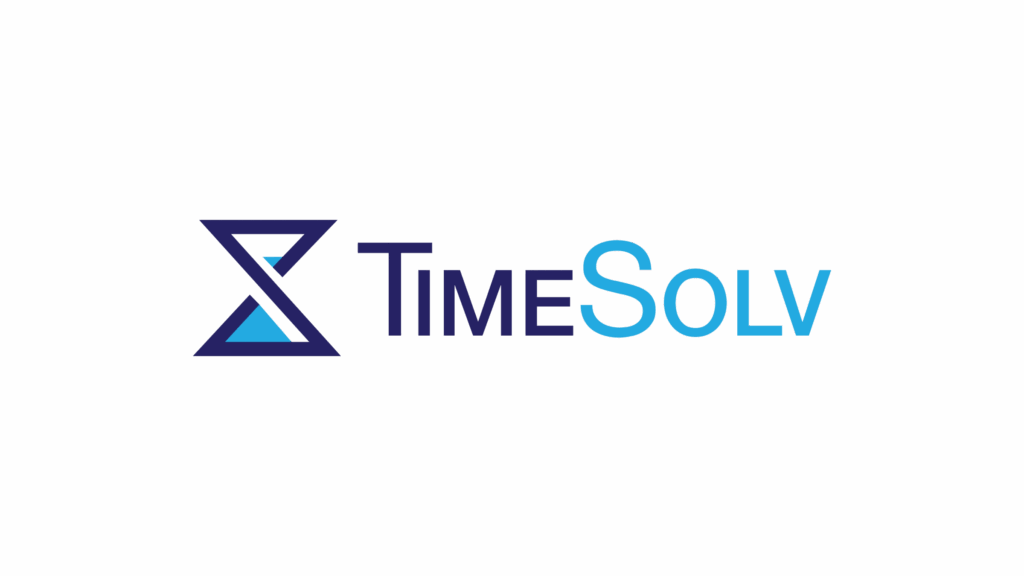According to the American Bar Association, legal billing software now plays a central role in keeping your financial records accurate and secure. Web-based legal billing software gives you access from anywhere via the cloud, which makes it easier to stay on top of invoices, trust accounting, and payment tracking — even when you’re away from the office.
Whether you’re just starting to look at billing software, or you’re wondering which legal billing software offers the best integration with accounting software, you’ve come to the right place. In this guide, we’ll look at the top legal billing software options of 2026, how online legal billing software works, and important features to look out for when shopping around.
What’s the Best Legal Billing Software for Firms in 2026?
Below, you’ll find some of the best billing software for lawyers out there, each with its own pros, cons, and unique angles on what makes a quality software. Some platforms will fit certain firms better than others. If you know what to expect, you’re better positioned to pick what actually supports your practice:

PracticePanther
As the only true all-in-one legal practice management software, PracticePanther is excellent for small to midsize firms, especially firms that need strong support without extra complexity. You’ll find built-in payment processing, powerful workflows, and a system interface that’s easy to learn right away. Plus, PracticePanther’s best-in-class support includes smooth data transfers, a dedicated customer success manager, and easy-to-follow resources that make learning the system feel like second nature.
Pros
- Clean, visually appealing interface that’s easy to learn and helps new staff get up to speed fast
- Built-in online payments with the lowest transaction rates, plus trust accounting, ACH support, and automatic client reminders
- Time tracking, batch and automated invoicing, and billing codes all handled in one place
- Financial reports cover revenue, profitability, collections, and matter-level performance
- Customizable billing and case workflows within a platform that works well on its own or integrated with your existing systems—plus a secure client portal for 24/7 invoice access and updates
- Reporting that supports stronger operational decision-making with aggregated data across time entries, fees, and expenses—all filtered by matter, staff member, or client.
Cons
- It might not check every box for larger operations like those in the Am Law ranks that tend to need heavier internal controls or enterprise-level setups.
- Some advanced features offer deep customization, but require a power user at the firm to help set up

Smokeball
Smokeball is designed for firms that handle a consistent volume of standardized cases and paperwork. It focuses on making document management and administrative work more efficient. Smokeball is best suited for practices that can easily work within its set framework rather than those needing more flexibility
Pros
- Built to help firms move quickly through routine matters
- Offers case management, billing, and compliance features in one platform
- Batch editing helps improve billing process efficiency
Cons
- The interface is not quite as sleek or modern as some alternatives
- For smaller firms, Smokeball can feel pricey, especially when some features may not apply to their niche needs
- Designed more for PC, so it’s not the best legal billing software for Mac users

MyCase
MyCase offers billing and payment features as part of its broader cloud-based practice management platform, designed for small to midsize firms. It offers billing features that include invoicing and trust accounting.
Pros
- Built-in tools for time tracking and invoice generation
- Can send automatic reminders to clients about upcoming or overdue payments
- Enables the generation of multiple invoices simultaneously
Cons
- Online payments require a separate LawPay account subscription and integration rather than being built-in
- Key billing features like batch billing, payment plans, and automatic interest application are only available on higher-cost plans
- Not organized intuitively; users can’t include multiple matters under one client

TimeSolv
TimeSolv focuses on helping law firms manage billing and time tracking with greater accuracy. Built specifically to support detailed billing workflows, it offers flexible invoicing, trust accounting, batch billing, and reporting tools. Firms that prioritize billing efficiency over broader practice management features may find TimeSolv fits well into their operations.
Pros
- Includes timers and manual options for time tracking
- Financial reporting options to monitor collections, revenue, and profitability
- A clear focus on billing accuracy and client payment management
Cons
- Offers limited practice management features compared to full platforms; would require additional subscriptions for full firm oversight
- The mobile application offers restricted features compared to the desktop version

Rocket Matter
Rocket Matter is a cloud-based legal practice management solution designed to assist law firms with various aspects of their operations, including billing and time tracking. It offers features like customizable invoicing, trust accounting, and integration with accounting software.
Pros
- Offers multiple methods for tracking billable hours
- Supports industry-standard billing codes
- Provides a secure platform for clients to view invoices and make payments
Cons
- Advanced customization options for billing and reporting are primarily available in higher-priced plans
- Reporting features are a bit basic compared to other practice management platforms

Clio
Clio is an old name in legal software, offering a cloud-based platform that covers case management, billing, and client communications. Firms turn to Clio for its wide range of integrations and flexible design, especially those looking to build an expensive and customized tech setup.
Pros
- Offers extensive integration options with numerous third-party apps
- Cloud-based design allows secure access from any device
- Allows clients to pay invoices online via credit card or ACH
Cons
- Users must frequently switch between separate Clio products to complete common tasks, interrupting everyday workflows
- Clio’s payment processor charges higher-than-average processing fees, which can add up fast for firms with steady client volume
- Functions that firms expect to be standard are often gated behind costly add-ons or higher-tier packages

LEAP
LEAP is a cloud-based legal practice management software that includes billing, case tracking, document creation, and reporting features. It is built to help firms organize client information and manage daily operations through one system. LEAP focuses on combining several administrative functions into a single platform.
Pros
- Built-in billing tied directly to client matters and time tracking
- Matter-level financial reports accessible within the platform
- Option to manage billable tasks and expenses from the mobile app
Cons
- Pricing is not listed publicly and must be requested through a sales consultation
- Some basic billing functions (like client installment plans) require third-party add-ons
Now that we’ve looked at the top options, it’s worth stepping back and covering what legal billing software actually does. Billing tools aren’t all built the same, and depending on how your firm works, you’ll want to know which features make a real difference day to day. Let’s walk through the basics behind billing software, what it can help with, and what to expect when you’re looking for the right fit.

The Basics of Legal Billing Software
Legal billing software should help simplify, automate, and protect your firm’s billing process, from the first billable hour to the client’s final payment. Unlike other digital billing solutions, legal billing software contains features and capabilities specific to the practice of law, making it the best billing software for law firms of any size or legal practice.
Some of the core functions billing software provides include:
- Time tracking functions to record and compile billable hours in real time.
- Invoice generation pulled straight from your time tracking logs.
- Workflow automation to cut down time spent doing repetitive tasks.
- Security features to maintain legal compliance and safeguard your data.
Many legal billing software will often be a part of a larger legal practice management software (LPMS); an LPMS supports not just billing, but client communications, scheduling, document management, and more. Opting for a comprehensive, all-in-one solution further helps your firm operate with a simpler, smoother, safer process — for you and your clients.
What Benefits Does Legal Billing Software Offer?
For even the best attorney, billing software provides massive support that not only makes their job easier, but frees up more time and headspace for other matters. The most important benefits include:
- A simpler, more streamlined billing process to raise efficiency and lower stress.
- Better security and ethics safeguards that help protect you and your clients.
- Digital technology provides more ways to integrate each part of your business.
- Cloud technology allows for remote access to your firm and all its information.
The right software addresses many pain points that you’re likely facing as an attorney. A recent tech report by LawVU found that some of the top stressors for attorneys include burnout, inefficient workflows, and a high volume of work (much of which is repetitive). Legal billing software helps cut down on many tasks that must be done for every client, while also requiring a high focus on details. Processes like trust accounting and tracking billable time are made much simpler — and more accurate — with the help of billing software.

How Much Does Billing Software Cost for a Law Firm?
Legal billing software can cost a little or a lot each month, depending on what you need and which provider you choose. Most companies offer tiered subscription models, with basic plans that cover the essentials and higher tiers that unlock more advanced features.
But the price tags can escalate fast. Platforms like Smokeball and Clio, for instance, climb to the top of the range: Smokeball’s upper tiers go as high as $219 per user, while Clio’s most advanced plan hits $139 per user, not including extra charges for add-ons or integrations. Filevine doesn’t list its pricing publicly at all, which often signals a more complex — and expensive — cost structure. PracticePanther offers a more transparent and balanced pricing model with three straightforward plans, each designed to meet firms where they are:
- The Solo plan starts at $49 per user each month, billed annually, and includes basics like time tracking, expense tracking, ePayments, internal chat, and document templates.
- For firms needing more customization and security, the Essential plan runs $69 per user each month, adding features like custom fields, custom security roles, and invoice read alerts.
- The Business plan, at $89 per user each month, offers even more — including two-way texting, intake forms, and LEDES billing capabilities.
Does Legal Billing Software Support Compliance With Industry Standards Like LEDES and UBTMS?
The best legal billing software will indeed support compliance and ethics standards like LEDES formatting and UBTMS codes. This, among other reasons, is why attorneys should avoid generic billing software: because legal billing software accounts for the nuances of practicing law.
Legal task codes, billable time tracking, trust accounting — all of these standards are both unique to practicing law and critical to maintaining an ethical firm. Not only is legal billing software a more ethical choice, but it’s also a more efficient choice, particularly when it comes to billing processes. Workflow automation helps cut down on time spent doing repetitive tasks, while also making sure your firm consistently follows the same ethical procedures when completing billing tasks.
Which Is the Best Legal Billing Software for My Firm?
Legal billing software is at its best when it’s cost-effective, easy to use, and part of a comprehensive practice management solution. For attorneys, billing is a process that both requires high attention to detail and high amount of repetition, both of which can wear down even the best attorneys as they take on more cases.
As you browse the options for legal billing software, be sure to not only demo the software for yourself, but have a full grasp on how it will integrate into your firm’s operations — and whether or not you’ll have help in that process.
When it comes to billing software, quality and flexibility are what matters. At PracticePanther, we pride ourselves on offering the #1 rated billing software as part of a complete legal practice management solution. PracticePanther is the only true all-in-one solution for law firms, complete with features to assist with every part of running a law firm. Trusted by thousands of law firms across the world, PracticePanther is built to help you run a stronger, more profitable practice.

